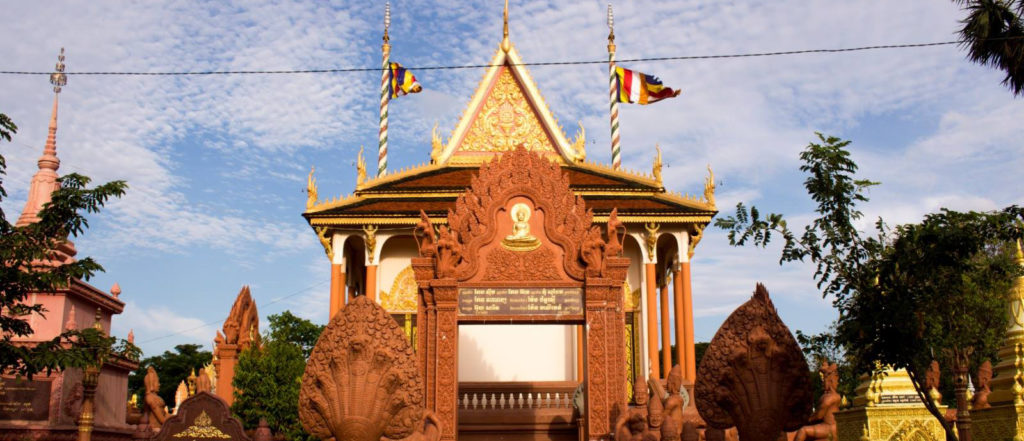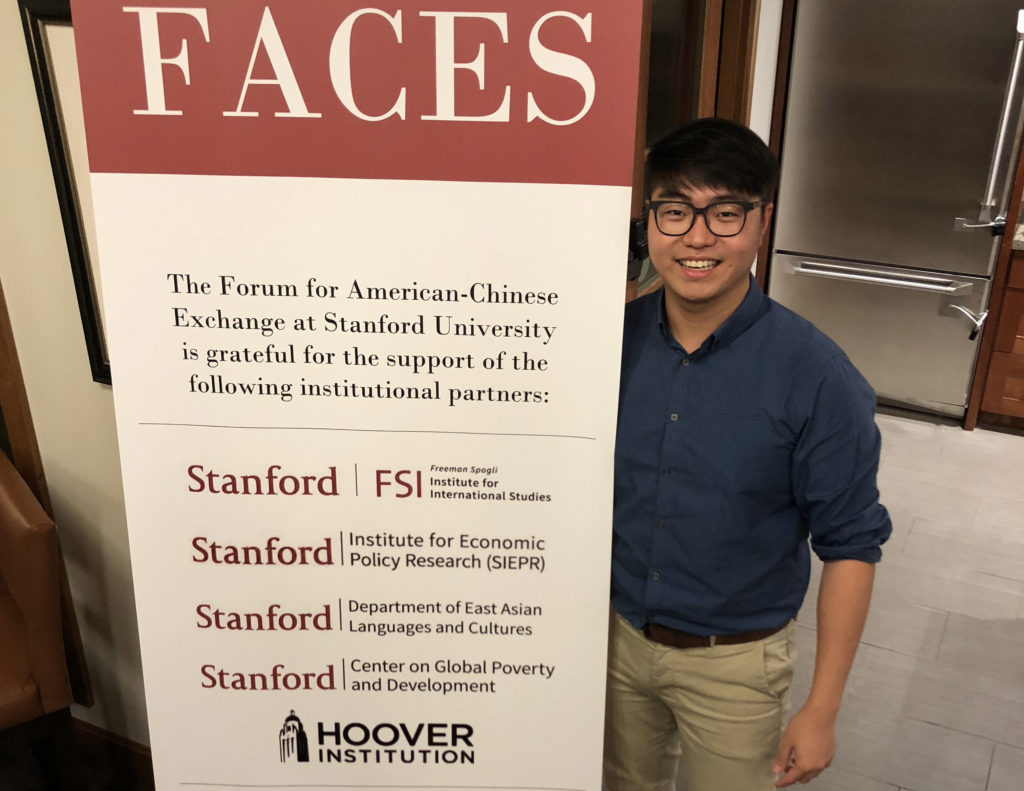From Singapore to Cambodia and China, graduating students cap off their Yale-NUS experience with a year-long project
Students from the Class of 2019 have been hard at work on their capstones over the past academic year. The capstone project is a year-long in-depth research study that Yale-NUS seniors embark on in their chosen major and field of study.
The capstone marks the culmination of the students’ learning experience at Yale-NUS, and it very often synthesises what students learned from the curriculum, research work with professors and experiential learning opportunities such as study abroad or attachments.
Physical Sciences major Vanessa Koh (Class of 2019) chose to work on a capstone related to ultracold atoms after completing an independent study module, Special Projects in Science, with a research group at the Centre for Quantum Technologies (CQT). Following the course, she “discovered her affinity with laboratory work and fell completely in love with the sub-field of ultracold atoms”.
She explained that her capstone involves thinking about creative ways to trap single atoms in arbitrary geometries using spatial light modulation to manipulate lasers. “Single ultracold atoms is a promising candidate for the physical realisation of the quantum bit (qubit), which is important for quantum computing or quantum information processes. But the road leading up to such grand aspirations begins with our ability to effectively trap and control single atoms at very low temperatures,” Vanessa explained.
When Vanessa first entered college, she had the intention to major in literature. However, the interdisciplinary education at Yale-NUS piqued her curiosity in physics and led her to subsequently decide on a major in the Physical Sciences. Vanessa shared that one of the biggest factors that influenced this decision was the mentorship she received from Assistant Professor of Science (Physics) Ng Hui Khoon, who taught her Scientific Inquiry I and Classical Mechanics, and with whom she worked with as a student associate assisting in research in theoretical physics.
After graduating, Vanessa will be returning to CQT to work with a research group that studies universal time-keeping using atomic clocks, before she enters Cambridge University to pursue her Masters degree in Atomic, Molecular and Optical (AMO) Physics.
Another student whose capstone was influenced by his experience during an experiential learning opportunity is Pang Wei Han (Class of 2019), who decided to focus on Cambodian Buddhist murals for his History capstone.
For his capstone, Wei Han examined how the murals included elements such as references to Angkor, Prince Sihanouk and the French Empire as a result of their situation within the Cambodian context. In the process, he has travelled to various provinces in Cambodia multiple times to further his research and catalogue over 70 temples.
 Image provided by Pang Wei Han.
Image provided by Pang Wei Han.
“I think that Cambodian Buddhist murals is a relatively under-researched field, and most scholars take very art historical approaches to studying it, whereas I hope to engage it from a more historical and anthropological lens,” he said.
Wei Han shared that the academic opportunities provided by Yale-NUS greatly shaped his interest in Cambodian Buddhist murals.
“My exposure to classes when I was at SOAS University of London for my study abroad related to Cambodian Buddhism – from Historical Buddha and Angkor, to the Vietnam War’s impact on Cambodia, which clearly moulded my research for my capstone” he said.
Additionally, the various experiential opportunities Wei Han received via the Centre for International & Professional Experience (CIPE) facilitated a more thorough research process for his capstone. With the help of CIPE, he spent the past few summers in Cambodia interning and learning Khmer. The experience helped him build a better understanding in his field of research, and made him more comfortable returning to Cambodia to conduct fieldwork independently.
His “many experiences with Cambodia over the summers also allowed him to build integral connections with members of the community”, where the mentors and friends he made during his time in the different provinces helped him connect with abbots who provided further insight for his capstone.
Chen Qi Hang (Class of 2019, in photo below) also drew inspiration for his capstone from experiences gained from both within and outside the classroom.
 Image provided by Chen Qi Hang.
Image provided by Chen Qi Hang.
Qi Hang was selected to be an Exemplary Voices Scholar to participate in the 2018-2019 Forum on American/Chinese Exchange at Stanford (FACES), in both Stanford University in Palo Alto, USA, and Peking University in Beijing, China, and his involvement in the forum helped provide renewed insights for his Global Affairs capstone.
His capstone sought to diagnose the problems on the ground with China’s ambitious infrastructure project, the Belt and Road Initiative (BRI), where he examined two similar projects in Malaysia, a key BRI partner – the East Coast Rail Link and the Malacca Gateway.
“Analyses on the BRI are not abundant since it is a very contemporary policy that has existed only since 2013. Even within works published since, very few have been able to bridge Chinese and BRI partner perspectives, conduct project-based comparative analyses and bridge different languages in sources used. My research contributes to existing literature by filling in the aforementioned gaps.”
As a Global Affairs major, Qi Hang’s inclination towards the field of international relations in East Asia has been a “gradual journey”, where his interest was first piqued with the courses he took at Yale-NUS.
Subsequently, his interest in BRI was further developed during his internship at the Center on US-China Relations at the Asia Society, a New York-based think tank, where he researched on Chinese non-state actors, which culminated in his penultimate internship at the Singapore Institute of International Affairs.
“(At SIIA), I was exposed to the business side of the BRI, having spoken to Chinese and ASEAN corporate entities alike. This directed my capstone away from theoretical international relations paradigms, towards regional micro-level project analyses looking at financing, contracting and construction of BRI projects, specifically in Malaysia,” said Qi Hang.
Reflecting on his experience, Qi Hang found his overseas experiences most valuable in creating depth to his capstone research.
“My research trip to the Chinese University of Hong Kong University’s Service Center on China Studies was integral in sourcing high-level strategic documents for my mixed methods approach in my research,” he shared. “This is because these files were strictly in Chinese, and were not circulated online or outside of China”.
Without a doubt, the capstone has been a defining part of many seniors’ academic journey at Yale-NUS. Though rigorous, many seniors felt that it was a very rewarding aspect of their education at Yale-NUS that prepared them well for their plans after graduation.
This story is the first of a two-part series on Yale-NUS’ capstones in 2019. Watch this space for the next story featuring capstones by Yale-NUS seniors.





